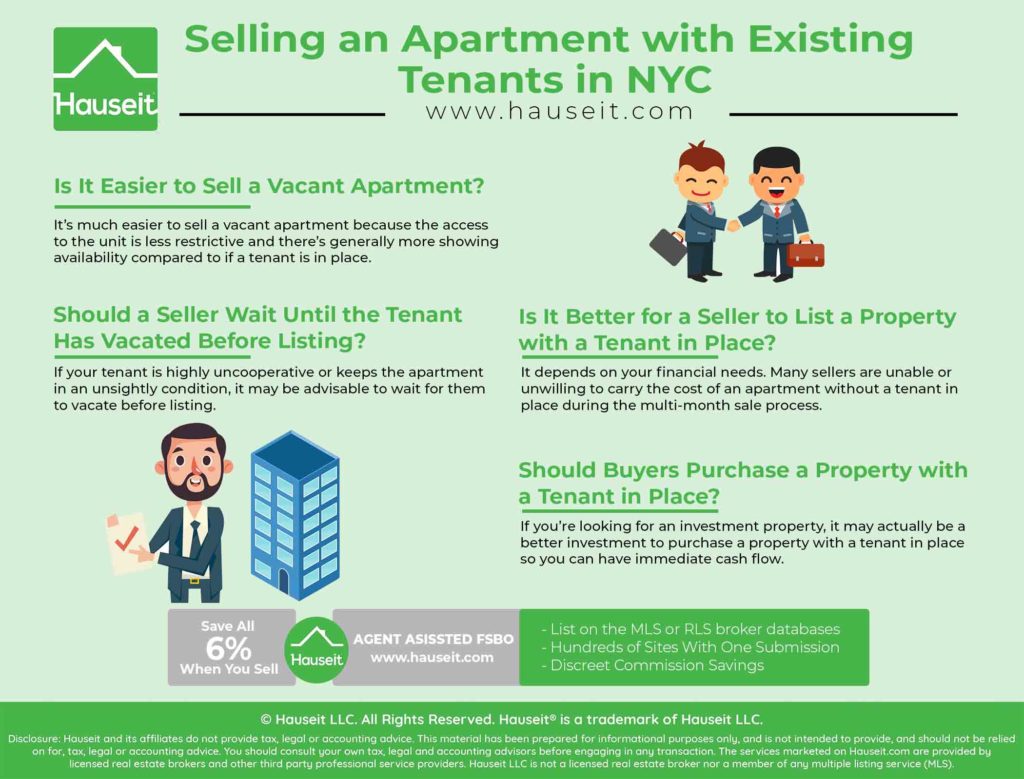Selling an apartment in NYC with existing tenants in place can be much more challenging than selling a vacant apartment. This is especially so if you’re selling a co-op or a single-family home which is not catering to an investor buyer base, as the buyer will likely be an owner-occupant who won’t want a tenant to be in place post-closing.
If you’re selling a condo or a multifamily property, having an existing tenant can actually be beneficial. This is because the majority of investor buyers would ideally like to have a tenant in-place as quickly as possible after closing. In some cases, investors specifically look for units with tenants in place in order to minimize the risk of vacancy (and zero cash flow generation) after closing.
Regardless of what property type you are selling, the best case scenario is to have an existing tenant on a month-to-month lease.
That way, you can effectively market your home to both investors who’d like certainty of cash flow and owner-occupants who’d like to move in right after closing. Investors will like the idea of carrying over the tenant post-closing, and owner-occupants will appreciate the flexibility of being able to terminate the lease so that they can take occupancy of the property right away.
It’s also equally valuable to have a tenant in place, provided that the lease has an early-termination clause in the event of a sale. Once again, the option value here is highly favorable to the seller’s marketing efforts since having the tenant in place with an early termination clause would still encourage owner-occupant buyers to purchase the property.
The key disadvantage of having a tenant in place, regardless of the lease terms, is the fact that it’s significantly more difficult to accommodate private showing requests and hold open houses. Another disadvantage is the possibility that the tenant keeps the unit in an unsightly condition, perhaps even so bad to the extent that it’s not possible to take professional photos.
Table of Contents:
It’s much easier to sell a vacant apartment. This is because access to the unit is less restrictive and there’s generally more showing availability compared to if a tenant is in place. Coordinating a private showing or an open house with a tenant in place requires the extra step of contacting the tenant and waiting to hear back.
Because tenants don’t have any skin in the game when it comes to a sale, many tenants are incredibly unresponsive and often require multiple reminders when it comes to requesting approval for a private showing.







